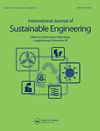Practicing coopetition for food supply chain sustainability: a contextual perspective in the Norwegian fishing industry
IF 3.6
Q3 GREEN & SUSTAINABLE SCIENCE & TECHNOLOGY
International Journal of Sustainable Engineering
Pub Date : 2022-10-13
DOI:10.1080/19397038.2022.2131932
引用次数: 2
Abstract
ABSTRACT With growing concerns about sustainability, competing companies in the food supply chain are compelled to engage in non-traditional forms of collaboration. Coopetition (i.e. horizontal collaboration with competitors) is gaining attention as a means of improving sustainability performance in supply chains. However, little is known in the existing literature about the causal mechanism and conditions of coopetition to improve supply chain sustainability in the food industry. Based on an embedded case study in the Norwegian fishing industry, we posit several propositions and develop an empirical framework delineating the relationship between coopetition and supply chain sustainability. The case study research is informed by semi-structured interviews corroborated by relevant secondary data. Our findings reveal a set of dynamic capabilities through which coopetition improves supply chain sustainability. Besides, laws and regulations, and certification and standards, positively impact the relationship between coopetition and supply chain sustainability. Conversely, insufficient funds, conflicts of interest, and firm size affect the same relationship negatively. This study contributes to the literature by providing valuable insights into coopetition as a source of dynamic capabilities. In addition, our results show how coopetition can best be leveraged by managers to improve the sustainability of the food supply chain.食品供应链可持续性的实践合作:挪威渔业的背景视角
摘要随着人们对可持续性的日益担忧,食品供应链中的竞争企业被迫进行非传统形式的合作。合作(即与竞争对手的横向合作)作为提高供应链可持续性绩效的一种手段,越来越受到关注。然而,在现有文献中,关于合作竞争提高食品行业供应链可持续性的因果机制和条件知之甚少。基于挪威渔业的嵌入式案例研究,我们提出了几个命题,并建立了一个经验框架,描述了合作竞争和供应链可持续性之间的关系。案例研究是通过半结构化访谈进行的,访谈得到了相关二级数据的证实。我们的研究结果揭示了一组动态能力,通过这些能力,合作竞争可以提高供应链的可持续性。此外,法律法规、认证和标准对合作竞争和供应链可持续性之间的关系产生了积极影响。相反,资金不足、利益冲突和公司规模会对同样的关系产生负面影响。这项研究通过提供对合作竞争作为动态能力来源的宝贵见解,为文献做出了贡献。此外,我们的研究结果表明,管理者如何最好地利用合作竞争来提高食品供应链的可持续性。
本文章由计算机程序翻译,如有差异,请以英文原文为准。
求助全文
约1分钟内获得全文
求助全文
来源期刊

International Journal of Sustainable Engineering
GREEN & SUSTAINABLE SCIENCE & TECHNOLOGY-
CiteScore
7.70
自引率
0.00%
发文量
19
 求助内容:
求助内容: 应助结果提醒方式:
应助结果提醒方式:


